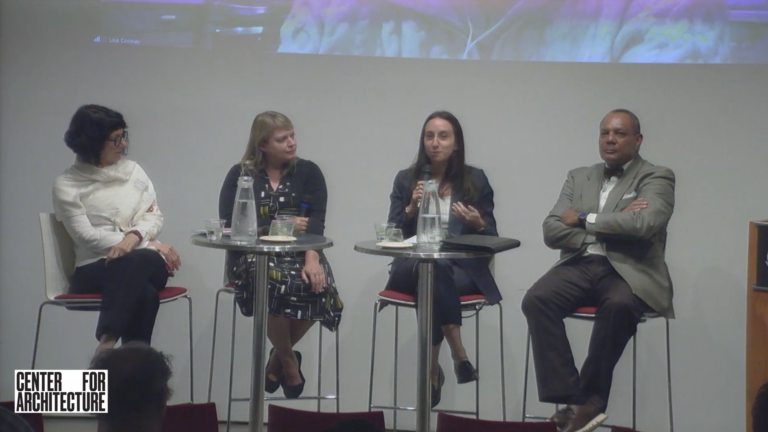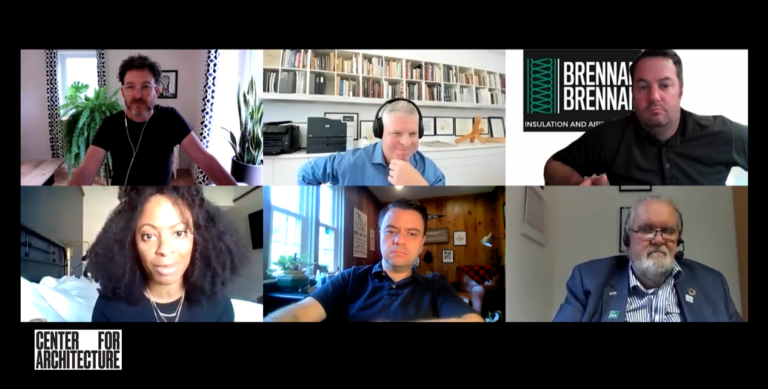Guidance for Emerging Sustainable Design Warriors: Passive House Case Studies and a Net Zero Green Economy offers a deep dive through three case studies based on Passive House Principles. The studies demonstrate net-zero achievements and sustainable entrepreneurship strategies that can inform public policy in order to create meaningful and achievable incentives for “net-zero zip codes” that will serve as green economic zones.
Keynote speaker Andreas Benzing, co-founder of New York Passive House, will present his latest passive house project and will provide insights on post development opportunities, emerging short-term innovations, and long-term possibilities instrumental in achieving decarbonized development and cities.
Dennis Ramdahin, Founder of Vihara Foundation and a Green Building Professional and Climate Finance Engineer, will be joined by collaborators Chester Birchwood and Itai Kaitano of BK Climate Solutions, a hydronic mechanical contracting firm that specializes in leading edge systems powered by renewables. They will present two homes in Brooklyn: The Park Slope House and The Von Mueller House.
The mechanical system of The Park Slope House, an 1880’s house renovation, uniquely utilized a prototype German Air to Water heat pump system provided by Dimplex Germany and Taco United States for the mechanical system which consists of hydronic radiant floor and AC/dehumidification. This rigorous implementation, built to match Passive House standards, resulted in a no-compromise, energy-cost-free home with high interior comfort, improved air quality, and a remarkable carbon footprint reduction. The home and installation has been featured in trade publications such as HVACR Contractors Magazine, and is scheduled to receive additional editorial coverage detailing modern air to water heat pump installations and sustainable building techniques.
The Von Mueller House is an ongoing collaboration between the building owner and the Vihara Foundation’s Super Energy Efficiency Building Initiative for Climate Action (SEEBICA). SEEBICA aims to deliver a scalable net-zero community housing retrofit—a model being designed for urban cities to achieve high-performance residential sector building energy efficiency at scale. This is achieved through solar photovoltaic, shallow field geothermal heat pump heating and cooling, rainwater harvesting, provisioning for salt water battery energy storage, mechanical ventilation, a green wall for food production and summer solar heat gain reduction, onsite composting and gardening and optimized utility efficiency.
Ramdahin will also discuss the potential for community scale energy efficiency, green finance innovation, and job creation and economic upliftment of low-income communities via energy efficiency and sustainable building design.
Join us for a tour of both houses on Saturday, Dec. 3.
As the voice of the new generation of architects and sustainable design warriors, moderator Gioia Montana Connell will steer the conversation to consider what is possible within the spectrum of Passive House and hybrid innovations. We’ll explore how to achieve optimum building performance that eliminates load demand upon local infrastructure to result in net-zero zip codes that in turn result in green economic zone opportunities for individual home owners
Keynote:
Andreas Benzing, Co-Founder, New York Passive House; Architect, Benzing Architects; Part-Time Assistant Professor, Columbia University and Parsons School of Design
Speakers:
Miguel Angel Baltierra, Assoc. AIA, LEED BD+C, PMP, CAHP, AAAE CM, Director, Sustainable Strategies for the Universe
Chester Birchwood, Heating and Ventilation Engineer, Renewable Energy Engineer, and Managing Director, HVAC Kings LLC; Partner, BK Climate Solutions
Itai Kaitano, Founder, BK Climate Solutions
Dennis Ramdahin, Founder, Vihara Foundation; Green Building Professional and Climate Finance Engineer
Moderator:
Gioia Montana Connell, Assoc. AIA, LEED AP BD+C, WEDG Associate, Built Ecology Consultant, WSP



